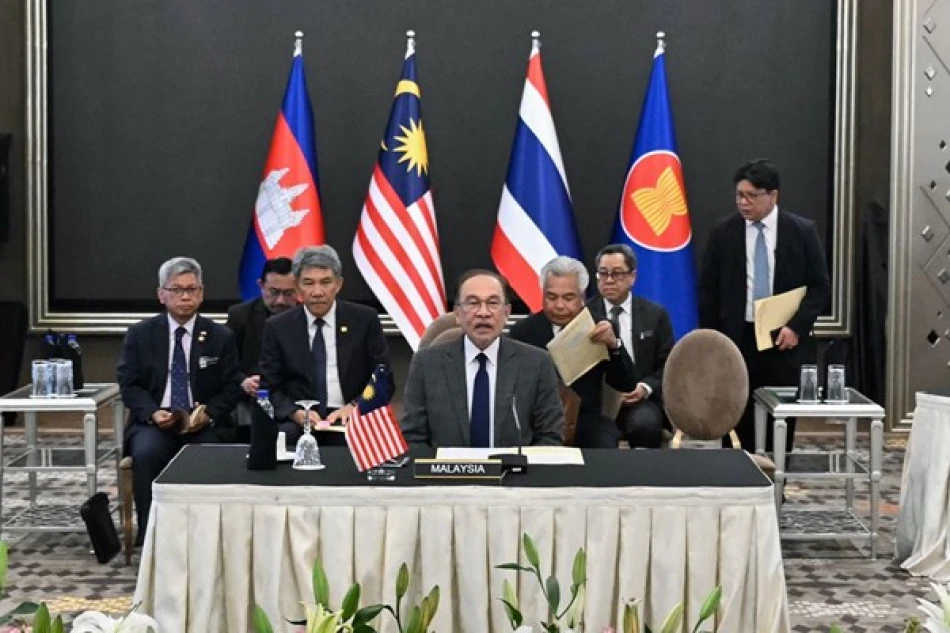
Thailand and Cambodia Agree to Ceasefire Amid Border Tensions
Thailand and Cambodia Reach Ceasefire Deal Through Malaysian Mediation
Thailand and Cambodia have agreed to an immediate and unconditional ceasefire starting Monday midnight, following successful mediation by Malaysian Prime Minister Anwar Ibrahim. The breakthrough marks a significant diplomatic achievement for Malaysia's growing role as a regional peacemaker and could stabilize a volatile border area that has seen recurring tensions between the Southeast Asian neighbors.
Malaysia's Diplomatic Victory
Prime Minister Anwar Ibrahim announced the agreement, stating that "Cambodia and Thailand have reached a joint agreement stipulating an immediate and unconditional ceasefire effective from midnight on July 28." This successful mediation represents a notable foreign policy win for Malaysia, positioning the country as an influential broker in regional disputes.
Malaysia's intervention demonstrates ASEAN's potential for internal conflict resolution, moving beyond the organization's traditional non-interference policy when member states face bilateral crises. This approach mirrors successful diplomatic initiatives seen in other regions, where neighboring countries have effectively mediated disputes.
Historical Context of Thai-Cambodian Border Tensions
The Thailand-Cambodia border has been a source of periodic conflict for decades, often centered around territorial disputes and the status of ancient temple sites like Preah Vihear. These tensions have previously escalated into armed clashes, disrupting trade and displacing local communities along the 800-kilometer shared border.
Unlike the major border wars of the 1980s during Cambodia's civil conflict, recent disputes have typically involved smaller-scale incidents. However, even limited skirmishes can have significant economic implications for both countries, particularly affecting cross-border trade and tourism revenues.
Regional Stability Implications
Cambodian Prime Minister Hun Manet characterized the agreement as a settlement "to move forward," suggesting both sides are committed to long-term peace rather than merely a temporary pause in hostilities. This language indicates a potential shift from the cyclical nature of previous ceasefire agreements that often proved temporary.
The timing of this agreement is particularly significant as both countries seek to boost post-pandemic economic recovery. Continued border instability would have undermined investor confidence and complicated regional supply chains that increasingly rely on seamless movement across Southeast Asian borders.
Economic and Strategic Considerations
For investors and businesses operating in the region, this ceasefire removes a key uncertainty that has historically affected infrastructure projects and cross-border investments. The agreement should facilitate resumed normal trade flows and potentially accelerate planned connectivity projects between the two countries.
The successful mediation also enhances Malaysia's reputation as a stable, diplomatically engaged nation, which could attract additional foreign investment and strengthen its position in regional economic partnerships. This diplomatic success comes at a time when ASEAN faces pressure to demonstrate unity and effectiveness in addressing regional challenges.
Most Viewed News

 Layla Al Mansoori
Layla Al Mansoori






